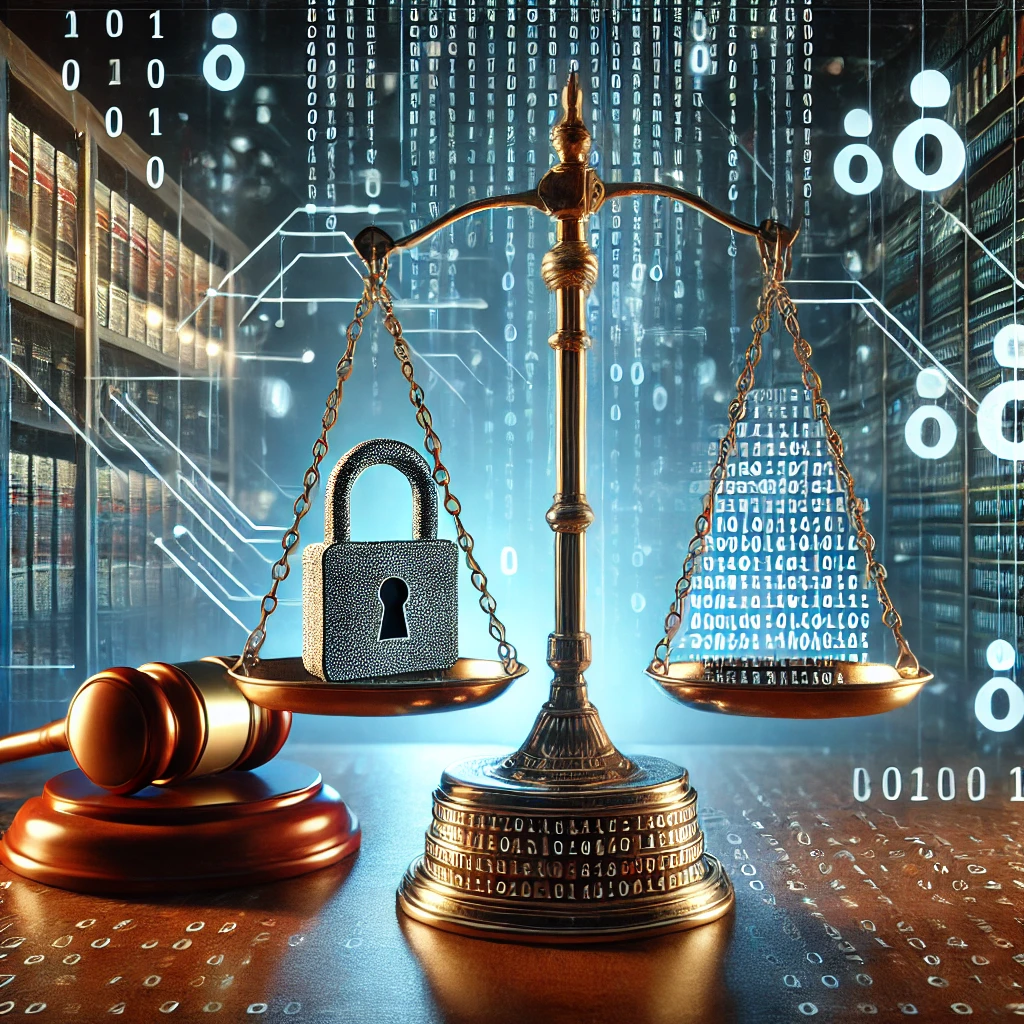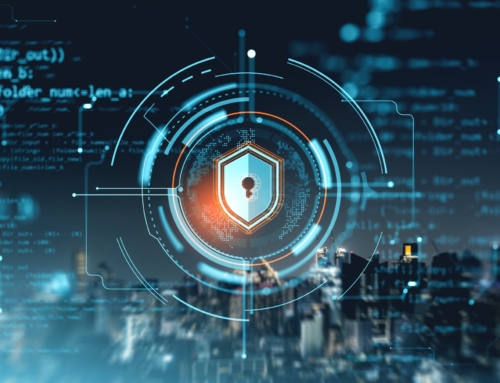Key Considerations for Legal Compliance in Ransomware Recovery
Understanding the Legal Landscape
Legal compliance in ransomware recovery is not just a technical issue but a legal imperative. In an era where ransomware attacks are increasing both in frequency and sophistication, knowing the legal framework that surrounds data breaches and ransomware recovery becomes crucial. As such, compliance does not merely shape the recovery process; it defines it. Data protection laws are stringent, with palpable legal consequences for missteps. These stakes make the alignment of recovery strategy with legal requirements a top priority for businesses looking to protect themselves effectively against ransomware threats.
The Intersection of Law and IT Management
In our efforts to effectively manage and mitigate the damage of ransomware attacks, we recognize the necessity of intertwining IT management strategies with legal requirements. It’s not enough to have a technically sound response to such incidents; the response must also be legally defensible. This is why we have an intricate plan in place that considers all legal requirements and ensures a swift, compliant response to ransomware incidents. Knowing what data has been affected, understanding the obligations for reporting, and navigating the legalities of engaging with perpetrators are critical components of our ransomware recovery plan.
Preparing for the Inevitable: Compliance as a Pillar in Ransomware Response
Ransomware attacks may feel like unexpected disasters, but we believe in being prepared for the inevitable. For us, legal compliance is not a hurdle but a foundational pillar in our approach to ransomware response. Staying ahead of potential attacks means integrating compliance into every layer of our IT management and disaster recovery planning. Being proactive not only mitigates the impact but also ensures that, should an attack occur, we can recover while upholding all legal obligations. This preparation safeguards not just our data, but also our reputation and the trust of those we serve.
Navigating Reporting Obligations and Regulations
In today’s digital landscape, legal compliance in ransomware recovery has become a cornerstone of corporate responsibility. As stewards of sensitive information, we at Alvaka are committed to guiding you through the intricate maze of reporting obligations and international regulations.
Understanding Your Reporting Duties
It’s pivotal to recognize that time is of the essence when responding to a ransomware attack. Given the stringent timelines dictated by various regulations for reporting data breaches, our team is primed to act swiftly. We ensure that all necessary notifications meet legal deadlines, avoiding the steep penalties associated with delayed or inadequate reporting.
We remain abreast of evolving legislation, such as the General Data Protection Regulation (GDPR) in the European Union, and stateside mandates like the California Consumer Privacy Act (CCPA), ensuring that our clients’ ransomware recovery efforts comply with the most stringent legal frameworks.
Legal Compliance in Ransomware Recovery: An Ongoing Process
Our approach to legal compliance in ransomware recovery is iterative, adapting to new legal precedents and regulations. We engage in a continual evaluation of legal mandates at the federal, state, and international levels. While maintaining data security and integrity, we expertly steer your recovery process, weaving in legal mandates in a way that’s seamless and effective.
- Leverage encryption protocols to protect data integrity
- Implement comprehensive cybersecurity measures
- Conduct regular risk assessments and compliance audits
- Formulate a robust incident response plan tailored to legal requirements
- Engage with law enforcement when necessary
By addressing these facets, we enhance resilience against the multifaceted threats posed by ransomware.
The Dual Role of Legal Counsel and IT Experts
In every aspect of ransomware recovery, we harmonize the expertise of legal professionals with our IT specialists, ensuring a unified and informed response. By doing so, we not only restore operations swiftly but also fortify your legal standing in the midst of a crisis. Our team recognizes the intricate relationship between technical recovery processes and legal imperatives, striking a balance that upholds the law while safeguarding your business assets.
This duality is pivotal in evaluating whether to pay a ransom—a decision fraught with legal and ethical implications. Our overarching strategy takes into account the legal repercussions of such actions, evaluating all options through a lens of compliance and corporate governance.
At Alvaka, we understand that navigating the complexities of legal compliance in ransomware recovery demands a keen eye for detail and a resolute commitment to the rule of law. By placing your trust in us, you’re not only ensuring a delicate balance between swift recovery and legal compliance but are setting a standard for responsible business conduct in the face of cyber adversity.
Did you know? Quick reporting is crucial after a ransomware attack. Many regulations mandate that businesses must notify affected individuals and authorities within a certain timeframe, often 72 hours after discovering the breach.
Steering the Course to Compliance in Ransomware Recovery
As we navigate the troubled waters of today’s cyber threats, we recognize that the process of ransomware recovery is not only a technical challenge but also a legal imperative. Our commitment at Alvaka has always been to assist our clients in not only restoring their operations but also ensuring that every step taken is in strict adherence to legal compliance in ransomware recovery. This dedication to compliance safeguards our clients from further legal entanglements and reinforces the trust that is fundamental to our partnerships.
Sealing the Deal on Legal Compliance in Ransomware Recovery
In the aftermath of a ransomware attack, the actions we take must be meticulously recorded and reviewed in compliance with legal standards. Our processes are designed to reflect an understanding of the dynamic legal environment, ensuring that every decision aligns with the current regulations. Legal compliance in ransomware recovery is a keystone in our protocol, one that secures our clients from potential compliance pitfalls and positions them favorably should they face any legal scrutiny.
Encapsulating Our Journey Through Ransomware Response
Embarking on ransomware recovery, we reflect upon the significance of being proactive rather than reactive. By integrating legal compliance into our ransomware response framework from the outset, we create a bulwark that not only shields our clients from the immediate threats but also fortifies them against potential legal repercussions. Our approach is comprehensive, encapsulating the lessons learned and the expertise gained through each unique challenge we have overcome together with our clients.
The Final Word: Legal Assurance in Ransomware Recovery
As we present the conclusive thoughts on legal compliance in ransomware recovery, it is our highest priority to reiterate the essence of lawful adherence. Our extensive experience and unwavering commitment equip us to provide our clients with services that are not just technically proficient but legally robust. At Alvaka, we stand firm on the foundation of integrity, ensuring that every recovery strategy is meticulously designed to meet the stringent demands of legal compliance — solidifying our clients’ trust and fortifying their cyber resilience.
The journey through the maze of cyber adversity is complex and fraught with risks, yet with Alvaka as your trusted ally, the path to recovery and compliance is navigable. Our unmatched expertise in managing the intricacies of post-ransomware recovery, paired with an uncompromising stance on legal compliance, sets us apart as the premier choice for businesses seeking security and peace of mind in the digital age.
FAQ
What legal ramifications could a business face in the wake of a ransomware attack? ▼
In the event of a ransomware attack, businesses may face legal consequences such as fines and penalties for non-compliance with data protection laws. There may also be liabilities for failing to secure personal data adequately. Additionally, companies could face lawsuits from stakeholders or customers impacted by the breach. Therefore, it is crucial for businesses to understand and adhere to the legal requirements to minimize potential legal ramifications.
How should a business align its IT management strategies with legal requirements? ▼
Aligning IT management strategies with legal requirements involves ensuring that data protection and security protocols comply with applicable laws and regulations. This includes regular risk assessments, implementing robust cybersecurity measures, and establishing incident response plans that incorporate legal considerations. Moreover, staff training on compliance matters is vital for maintaining a legally compliant IT management strategy.
What proactive measures can businesses take to prepare for ransomware attacks? ▼
Proactively preparing for ransomware attacks involves developing and regularly updating an incident response plan that includes both technological solutions and legal compliance strategies. Additionally, conducting regular data backups, encrypting sensitive information, and educating employees on recognizing phishing attempts are critical. Furthermore, businesses should regularly consult with legal and cybersecurity experts to stay abreast of evolving threats and compliance requirements.
Is paying a ransom during a ransomware attack legally advisable? ▼
Paying a ransom may not be legally advisable, as it can fund criminal activity and there is no guarantee that data will be restored. Moreover, in certain jurisdictions, paying a ransom to specific entities is illegal due to sanctions laws. Consequently, we typically counsel clients to focus on preventative measures and robust recovery strategies rather than considering paying a ransom.
What are the potential consequences of non-compliance with data protection laws after a ransomware attack? ▼
Non-compliance with data protection laws after a ransomware attack can result in significant fines and penalties from regulatory bodies. Furthermore, it can lead to the loss of customer trust, damage to the company’s reputation, and the potential for civil litigation. Companies must therefore ensure that they comply with all applicable data protection laws to mitigate these risks.
What should be included in a ransomware incident response plan? ▼
A comprehensive ransomware incident response plan should include immediate containment procedures, communication protocols with affected parties and law enforcement, data recovery processes, and post-incident analysis. Importantly, it must also address legal reporting obligations and strategies for managing potential legal issues. Additionally, the plan should be reviewed and practiced regularly to ensure effectiveness in the event of an attack.
How frequently should a business update its disaster recovery and incident response plans? ▼
A business should review and update its disaster recovery and incident response plans at least annually or whenever significant changes occur within the organization or the legal landscape. Furthermore, after any incident, it’s important to conduct a debrief and update the plans to reflect any lessons learned. This ensures that the plans remain relevant and effective in an ever-evolving cybersecurity environment.
Can a business face legal action from customers affected by a ransomware attack? ▼
Yes, a business can face legal action from customers if a ransomware attack results in the unauthorized disclosure of personal information. Affected individuals may seek compensation through legal channels if they believe the company failed to protect their data appropriately. This holds especially true if the company is found negligent in adhering to applicable data protection standards.
What role does employee training play in legal compliance for ransomware attacks? ▼
Employee training is a critical element of legal compliance in ransomware prevention and recovery. Training ensures that employees are aware of company policies, can identify potential threats, and understand the legal implications of ransomware attacks, such as the importance of protecting sensitive data and reporting incidents promptly. Regular training can significantly reduce the risk of a successful attack and consequently, legal complications that follow.
What should a business do immediately after detecting a ransomware attack? ▼
Upon detecting a ransomware attack, a business should immediately activate its incident response plan, which includes isolating infected systems to prevent further spread, informing legal counsel to understand the compliance obligations, and reporting the incident to the appropriate authorities. Additionally, communication with impacted parties must be handled promptly and carefully to maintain transparency and trust.








 Smoke testing is a term used to describe the testing process for servers after patches are applied.
Smoke testing is a term used to describe the testing process for servers after patches are applied.  This is a basic cost calculator for you to compute your typical monthly cost for patching your servers, PCs, laptops, tablets and associated application software. It also forms the basis for you to begin calculating your Return on Investment for software patching, or for comparison with alternatives to the manual process of patching operating systems and application software—such as Patch Management as a Service, also known as Vulnerability Management as a Service.
This is a basic cost calculator for you to compute your typical monthly cost for patching your servers, PCs, laptops, tablets and associated application software. It also forms the basis for you to begin calculating your Return on Investment for software patching, or for comparison with alternatives to the manual process of patching operating systems and application software—such as Patch Management as a Service, also known as Vulnerability Management as a Service.